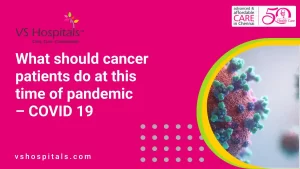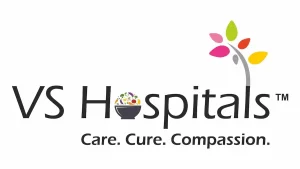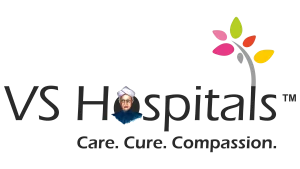Top 10 causes of Cancer, one of the leading causes of death worldwide, continues to impact the lives of millions of people. It’s a complex and multifaceted disease, with various risk factors contributing to its development. In this blog post, we’ll delve into the causes of cancer, shedding light on the factors that increase your risk of this formidable adversary.
Top 10 Causes of Cancer
Tobacco and Smoking
The use of tobacco products, primarily in the form of smoking, tops the list of the most common and preventable causes of cancer. Smoking cigarettes, cigars, and pipes exposes the body to a slew of harmful chemicals, such as nicotine and tar. These substances can lead to the development of cancers in various parts of the body, including the lungs, mouth, throat, and oesophagus. In fact, tobacco use is responsible for about 30% of all cancer-related deaths.
Diet and Obesity
Your diet plays a significant role in your cancer risk. As one of the top 10 causes of cancer, consuming a diet high in processed foods, saturated fats, and sugary beverages can contribute to obesity. Obesity, in turn, is a known risk factor for several types of cancer, including breast, colorectal, and pancreatic cancer. Maintaining a healthy weight through a balanced diet rich in fruits, vegetables, and whole grains can lower your risk of cancer. It’s essential to be mindful of your dietary choices as a preventive measure against cancer and other health conditions.
Exposure to UV Radiation
Prolonged exposure to ultraviolet (UV) radiation from the sun and tanning beds is another top cause of cancer, primarily skin cancer. Skin cancer, including melanoma, is one of the most common cancers, and UV radiation is a major contributor. Wearing sunscreen and protective clothing and avoiding excessive sun exposure can help reduce the risk of skin cancer. Regular self-examinations and dermatologist visits are also essential to catch any potential issues early.
Alcohol Consumption
Excessive alcohol consumption is closely linked to an increased risk of cancer, ranking among the top 10 causes of cancer. It can contribute to the development of cancers in the liver, mouth, throat, oesophagus, and breast, among others. To mitigate this risk, it’s advisable to drink alcohol in moderation or abstain altogether. Understanding the impact of alcohol on your health is an important step in cancer prevention.
Environmental Toxins
Exposure to environmental toxins, such as asbestos, benzene, and radon, can significantly increase the risk of developing cancer. Asbestos exposure, for example, is strongly associated with mesothelioma, a rare and deadly cancer. Radon, a colourless and odourless gas, is the second leading cause of lung cancer after smoking.
Infections
Infections caused by certain viruses and bacteria are among the top 10 causes of cancer. For instance, hepatitis B and C viruses can lead to liver cancer, while human papillomavirus (HPV) can result in cervical and oropharyngeal cancers. Regular vaccinations and screenings can help detect and prevent these infections, reducing the risk of associated cancers. Understanding these underlying causes is crucial for effective cancer prevention and management.
Genetics and Family History
Although inherited genetic mutations only account for a small portion of cancer cases, they are a significant factor for some individuals. If you have a strong family history of cancer, especially certain types such as breast, ovarian, or colorectal cancer, it’s essential to discuss your risk with a healthcare provider. Genetic testing can provide valuable information and guide preventive measures. While inherited genetic mutations are one factor, understanding the top 10 causes of cancer is crucial for taking proactive steps to reduce your risk and promote your overall health.
Hormonal Factors
Hormonal factors, particularly in the case of hormone replacement therapy (HRT) and hormonal contraceptives, can increase the risk of certain cancers. Women using long-term HRT may face an elevated risk of breast and ovarian cancer. On the other hand, some studies suggest that hormonal contraceptives can slightly increase the risk of breast and cervical cancer.
Lack of Physical Activity
In the list of the top 10 causes of cancer, sedentary lifestyles are becoming increasingly common and are associated with a higher risk of developing cancer. Physical inactivity can lead to obesity and increase the risk of colorectal, breast, and endometrial cancers. Regular exercise, on the other hand, can reduce the risk of cancer and improve overall health. It’s crucial to recognize the impact of lifestyle choices, including physical activity, on cancer risk and to incorporate healthy habits to lower that risk.
Chronic Inflammation
Chronic inflammation in the body, whether from causes of cancer and symptoms like conditions such as Crohn’s disease or through lifestyle factors such as a poor diet, can contribute to cancer development. Inflammation creates an environment in which cells are more likely to mutate and become cancerous. Reducing inflammation through a healthy diet, stress management, and regular check-ups with your healthcare provider can help mitigate this risk.
Conclusion
Cancer remains a formidable adversary, but understanding its causes of cancer and symptoms is essential in the battle against this disease. The top 10 causes of cancer we’ve explored in this blog post can guide you in making informed choices to reduce your risk. From avoiding tobacco and maintaining a healthy diet to protecting yourself from UV radiation and environmental toxins, these steps can significantly impact your health.
Read also Bone Marrow Transplantation in Cancer.




